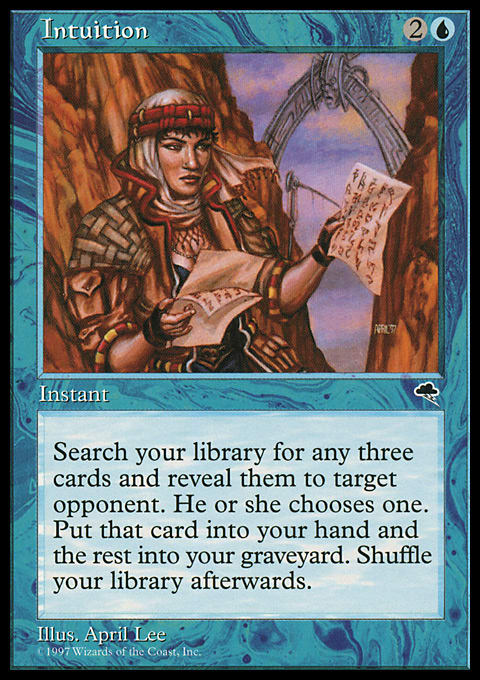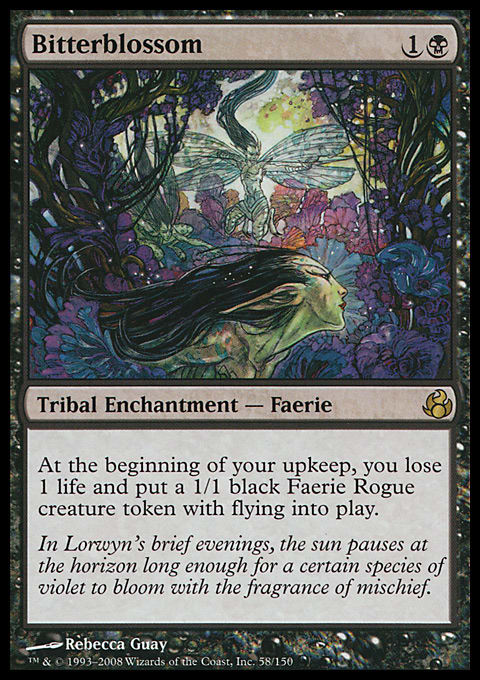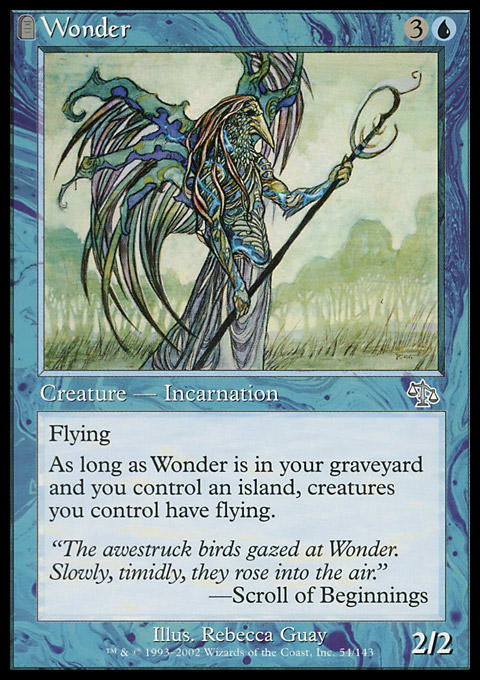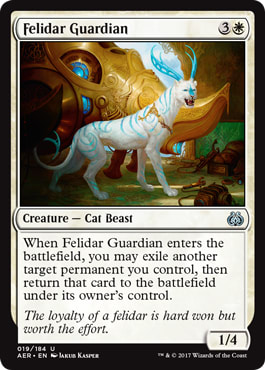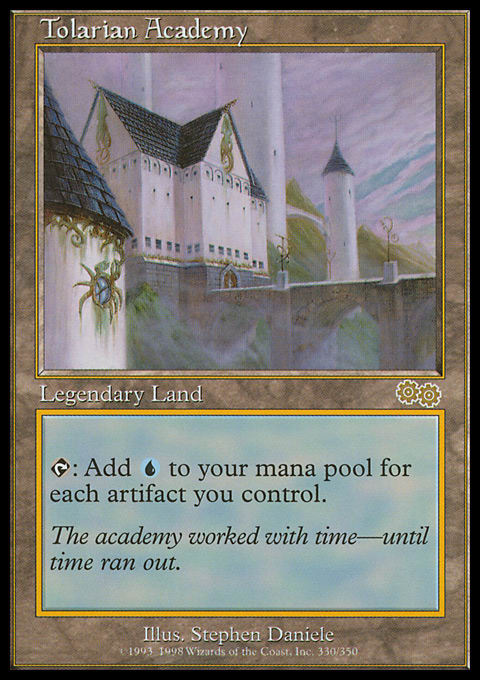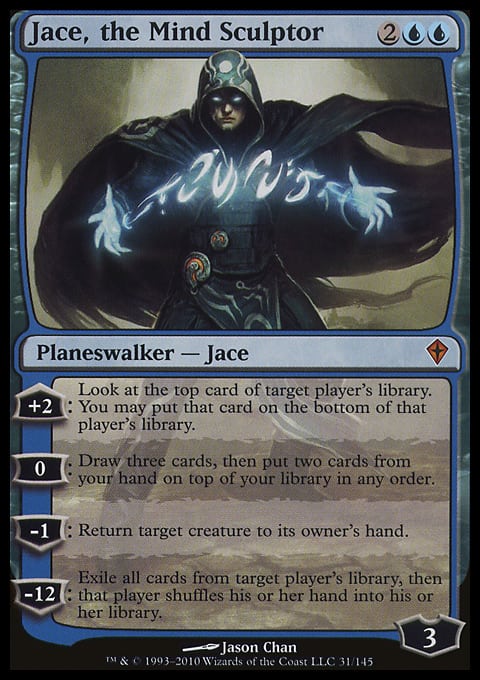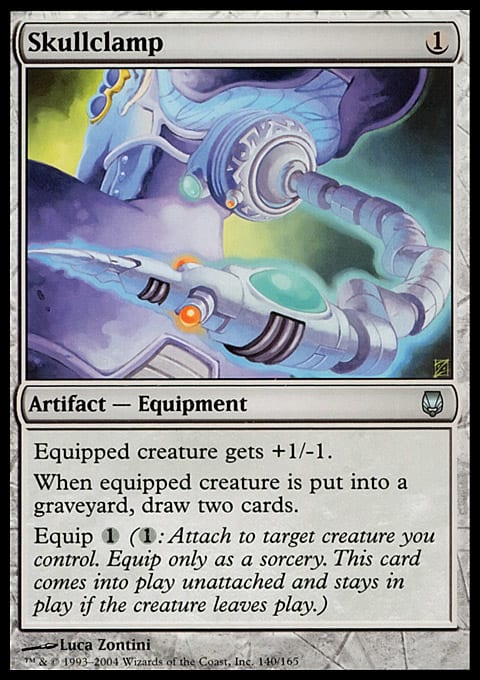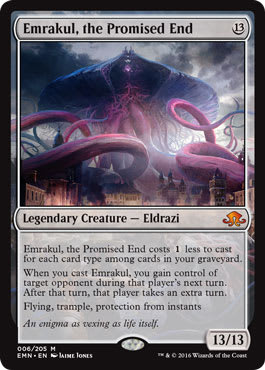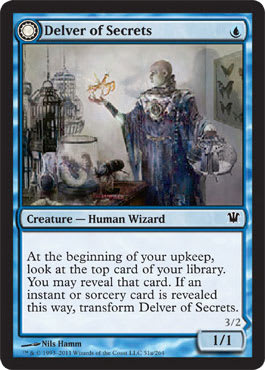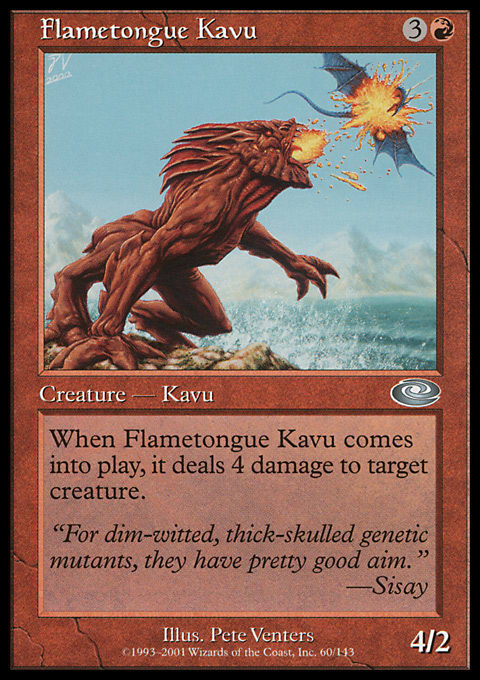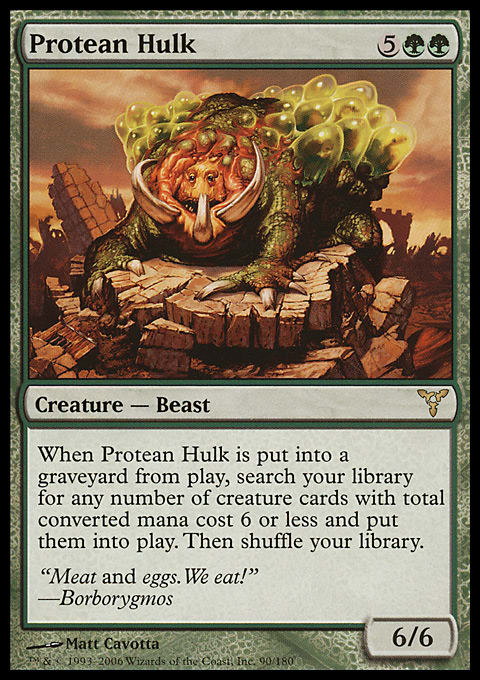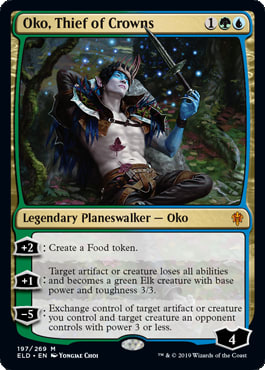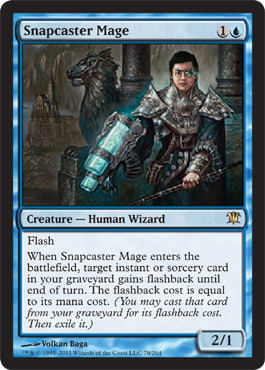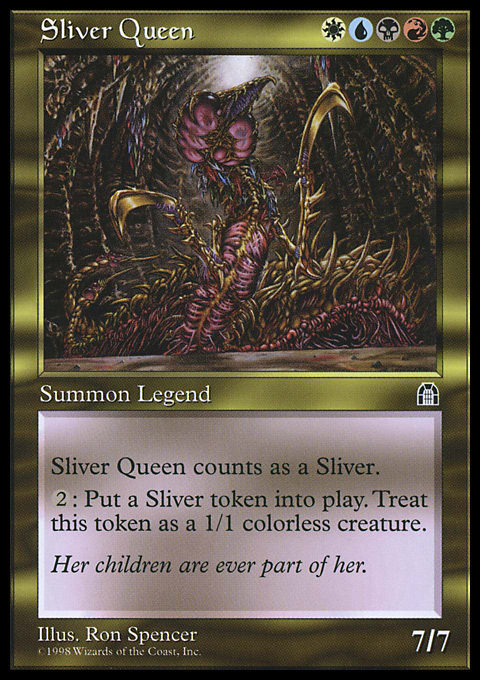Over Eternal Weekend a few weekends back, while I was doing coverage for the marquee Vintage and Legacy Championships, I had a good fifteen-minute talk in the Twitch chat (it can be done!) with a former version of myself. The discussion essentially came down to either of us being on one side or the other of the following dichotomy:
Bans are completely preventable and every time they happen it's because Wizards of the Coast screwed something up.
Or
Bans are not preventable, by and large, and Wizards of the Coast decisions have limited power on the matter.
Fast forward a short time to now, and we're looking at a post-Oko Standard world (he'll be in Eternal formats for a while, I know you miss him), where Jim Davis has again published an article I simply have to respond to.
Jim (and many, many others) are intuitively correct in their views on an idealist, minimum-ban Standard, or whatever other format. Unfortunately, as always, intuition sucks and isn't a good basis for how to approach most problems.
My impromptu debate opponent in Twitch chat, as well as my longtime colleague Jim, seems to have come down somewhere on the first side of the dichotomy; I am more comfortably in line with the latter half. If I had to guess, I'd say that players overwhelmingly fall down on the "blame WotC" side of the fence just as I once did.
Today I'm going to explain why that point of view is inaccurate and unproductive. Buckle up, because this is a Danny West article.
I'm going to need to get a little weird. But first, a flashback.
Once Upon a Time
Cue the harp music.
It wasn't that long ago that I was as naive as the rest of the lot. Getting Thoughtseized into Bitterblossom into running Mistbind Cliques or Cryptic Commands was a pretty helpless thing to sit through all the time. Despite no action taken during that period of Standard, ![]()
![]() Faeries - Dimir in today's parlance - was pretty ahead of most of the format.
Faeries - Dimir in today's parlance - was pretty ahead of most of the format.
I have a fond memory of sitting on the hood of a friend's car at four in the morning. We'd been jamming games at the local Waffle House after FNM, announcing spells and responses in between soda refills and questions from sleepy drunks. Once we'd had enough games (or texts from our partners asking us where the hell we were), we went back to the LGS parking lot and talked Magic. The most hilarious thing I remember being said is that Magic R&D people should be punished for such tiresome environments by being forced to play them again and again. Nothing says progress like the idiotic idea that Aaron Forsythe should take entire teams of real human people and chastise them by yelling "Again!" every time they finish up another late night office Faeries mirror.
My friend said it. It was 4 am. I was younger. These are my excuses in order of relevance.
So how in the world did I go from a player casually endorsing the most absurd workplace punishment ever uttered to an unabashed advocate of putting cards in indefinite time outs?
Fall(ibilism) of the Thran
We don't need a full philosophy course or anything here, but it's important that you go forward with a half-decent understanding of fallibilism. Though it's by definition hard to pin down, it's generally speaking, the belief that there is no idea so perfect that it can't contain flaws. We apply the best knowledge we have about reality where it can be practically applied, but further information and observation may always change that knowledge and how we apply it in the future.
Existence is a thing with a ton of breadth to it; the human capacity for understanding is really wide when compared to any other known conscious thing, but outside of that scope it's also very limited, embedded in some modest middle ground between the most unimaginably tiny, abstract, flickery probability clouds all the way up to some kind of functional interstellar meta-infinity. Humans are limited and thus, infinitely fallible. Therefore, any potential creation is going to be limited by the evolutionary restraints of its human creator. It will be, by nature, imperfect. All of this is to say, by logic if not common instinct, that nearly anything we can, as humans, meaningfully interact with will have in its nature an element of imperfection and limitation.
A cool way to map these concepts onto the reality we're all familiar with is to think of math. Even though math is essentially the language of existence and it has unbelievable amounts of predictive power, it isn't always clean or pretty. Think of a number like pi that goes on in a messy and indefinite fashion but is nevertheless necessary as it is. In math, which is an abstract system that maps unbelievably well onto reality, numbers themselves can be infinitesimal: At any point in space you can always go further to the right of the decimal place and eventually find a number that isn't zero.
In other words, there's really no such thing as perfect. At least not in any way we can conceive or interact with. Because everything has an element of fallibility, and the criticism of explanations is how we get to better and better explanations.
If finding good and reliable explanations were akin to managing a restaurant, fallibilism would be the hot water tap. Good luck getting on without it.
And since we're on the subject of numbers, excluding the Fraction Jacksons and Little Girls out there, Magic deals almost entirely in whole ones. Imagine that we didn't have a barrier that prevented us from really only enjoying Magic at "whole number" speed.
Picture a world of players so good at mental math that Mana Leak could be tuned to cost 2.231 mana. It could cost 87.49% Blue mana. Imagine if Thoughtseize could be scaled to cost 1.421 mana and 2.534 life.
Imagine you're a mechanic with amazing eye sight, fast hands, and great body control. Now imagine someone comes in and replaces all your wrenches with butter knives.
Magic is a system, and systems are inherently limited by their design parameters. The amount of knobs you can turn in Magic design is finite, which means the control any designer can over it is, once again, limited.
Seriously. It's no one's fault. This is just how this works.
It was a strange scenic road, but here we are at our logical destination: It is not possible to make a perfect Magic: the Gathering set. Even without the constraints of tournament rules, economic forces, and whatever other ad hoc factors you want to think of that surround Magic as a game design, any creative element of the game that would be introduced is going to be fallible just via the sheer tyranny of a stubborn and unmoving reality.
So let us forgo the needless, often cited idea that Wizards of the Coast Play Design screwed up or made mistakes on any given set or mechanic or printing of a card; we need to accept the reality that them not making mistakes is impossible.
Good is the Enemy of Great, but Impossible is the Enemy of Good
Prudent readers of the world: I hear you.
Yes, it may be technically impossible to make something "perfect" and the math of the universe blah blah blah, so what? Even if they can't get everything perfect, they should be able to do far better than they're currently doing.
100% fair. But let's consider another metric to make sure we're not just blaming the only people we instinctively think of when Standard starts going to hell again.
What do all of these troublemaker cards have in common?
They were all born of almost entirely different Magic R&D members and teams.
So the question becomes: How many more years of sample size do you need before you acknowledge that the issue with the process isn't between the walls of design and development meetings or between the walls of the designers' skulls?
Earlier I mentioned a thought experiment where we pretended to add lots of "dials" to Magic cards by using non integer numbers (3.9, two and a half, etc.). If the issue is that we don't have enough dials and knobs, why don't we just add some?
Tradition is the Enemy of Innovation
Here's your buried lede.
I have no idea why Vintage is still the only format with restricted cards. Baseball got replay before we broke the restricted barrier in tournament Magic. How is zero Oko, Thief of Crowns a better net solution for everyone than one? Why are bans so all or nothing if people feel so strongly one way or another about them? Shouldn't we have deduced that a more moderate solution was appropriate forever ago?
And don't tunnel vision me, either. Magic is not subject to most slippery slopes. If restricting something isn't working, the ban option is still there a month later or whenever. We're printing cards specifically for non-rotating formats now; we can stop pretending the secondary market isn't a factor. It doesn't complicate rules anymore than the average uncommon, so really, why not?
There's no reason in the information age that cards need to be held to a zero or four rule set. Use two, use three. Invent easy terminology to go with them. "I think they need to put Snapcaster Mage on the Modern Constrained List, but having Sinkhole impeded in Legacy is ridiculous."
It reduces the cost risk for players who want to buy into stale Standards but fear bans, and it minimizes feel-bad losses for the earlier investors. Someone made up four as the card limit over twenty years ago, and we still just do it out of sheer inertia. It's time to get of the bubble and think of a new solution to the Standard problem.
And above all else, it beats another public release statement where a designer in an impossible position has to apologize and pretend they don't know what's wrong.
It's nearly 2020. MTG Goldfish and its data troves are a few clicks away at all times. 99.9% of all relevant Magic information is available for no cost at all times. Our phones don't make us wait until we get home to search for Magic data. Players have evolved; they're smarter now. They're more efficient. Hundreds of thousands of passionate, interconnected player minds are not going to be fooled by a handful of designers and developers anymore. It doesn't work that way now. There's too much information moving too quickly.
You have to do something else.
I'm Not Your Standard Player
Magic is as great as ever. It's probably better than it's ever been, which includes its designers and developers. It's time for new ways of thinking about Standard to join the rest of current Magic thinking. To stay with the same Standard models of creation and expect better results is as fruitless as attacking vanilla creatures into a giant row of Slivers.
We are Magic players. We are the hive.
(~_^)
The Rascal®
"Indestructible" Danny West














